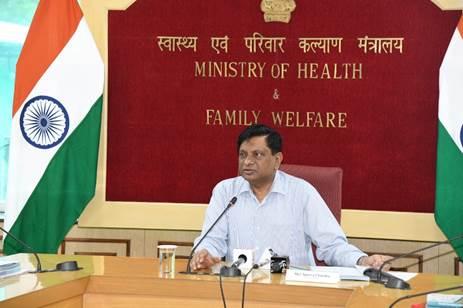Integrating the Health Management Information System (HMIS) portal with Reproductive and Child Health (RCH) and other portals of the Health Ministry may help boost data efficiency, said Apurva Chandra, Union Health Secretary on Monday.
He said this during the release of the annual publication ‘Health Dynamics of India (Infrastructure and Human Resources) 2022-23’, previously known as ‘Rural Health Statistics’.
“The annual publication is a valuable document furnishing much-needed information on manpower and infrastructure within the National Health Mission, helpful in policy-making, improving processes and problem-solving,” said the Health Secretary.
“Need to integrate the HMIS Portal with RCH and other portals of the Ministry to reduce the burden of work of health functionaries and to ensure that the data are uploaded timely and analysed carefully,” he added.
Chandra said that the document gives a cross-analysis across the states on the availability and deficiencies in manpower and infrastructure.

“The data is immensely helpful in understanding the requirements of the states, their priority areas, and formulating policies and targeted campaigns,” he said.
He noted that the health statistics also aid in making a comparison of the performance of the states on different parameters.
It showed that as of March 31, 2023, the country has a total of 1,69,615 sub-centres, consisting of 2,39,911 health workers; and 31,882 primary health centres (PHCs) employing 40,583 doctors/medical officers.
About 26,280 specialists and medical officers work at 6,359 community health centres (CHCs); and 45,027 doctors and specialists are deployed at 1,340 sub-divisional/district hospitals (SDHs), 714 district hospitals (DHs), and 362 medical colleges. These serve both rural and urban areas, according to the report.
In addition, there are 47,932 staff nurses at PHCs, 51,059 nursing staff at CHCs, and 1,35,793 paramedical staff at SDHs and DHs across the country.
The report, being released since 1992, provides detailed annual data on health infrastructure and human resources. It consists of comparative analysis, district-wise data, rural, urban, and tribal focus, classification of States/UTs, and guidance for stakeholders.
(With inputs from IANS)







